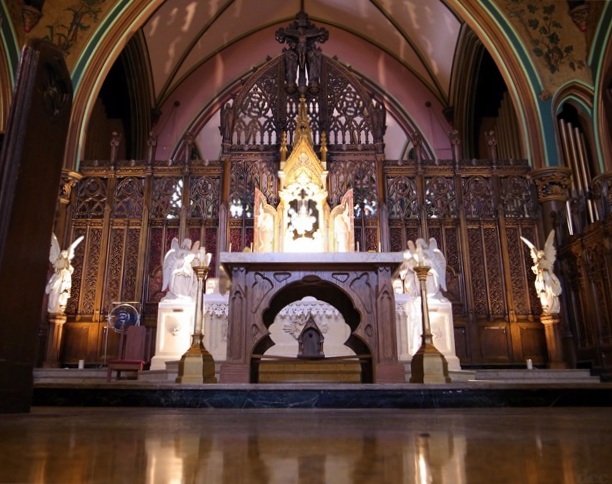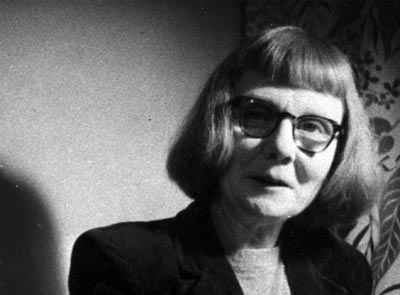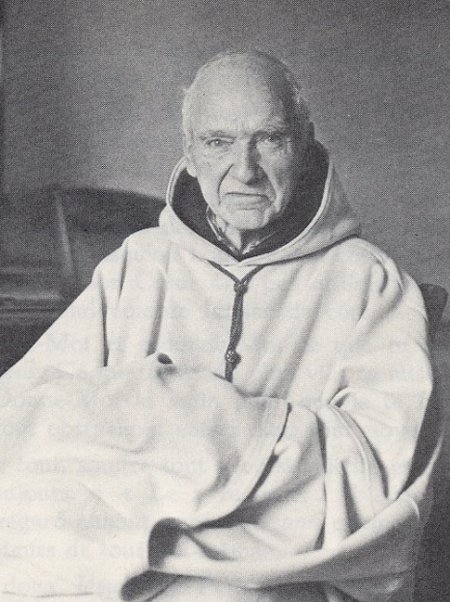Arch-Bishop Charles J. Chaput from ‘Strangers in a Strange Land’
Over the course of decades, Peck (psychiatrist/author of ‘People of the Lie’) met patients who didn’t fit a standard diagnosis but had certain recurring traits. These persons showed chronic disregard for the good of others to the point of causing grave psychological harm. They were subtly but pervasively self-centered. Their symptoms were broader than narcissistic personality disorder, but they weren’t sociopaths. They knew right from wrong.
…their main shared trait was the habit of lying. They all lied constantly and effortlessly about everything—especially about themselves, to themselves. As such, they were opaque even to highly trained therapists. More important, they were opaque to themselves. For Peck, the “layer upon layer of self- deception” that “people of the lie” build up insulates them so thoroughly from truth that they no longer recognize it. Their own irreproachability is their only truth.
Peck didn’t mince words. He calls such persons evil.,,,”evil” people erect so many defenses against self-examination and repentance that these become almost impossible without a miracle of grace.
“People of the lie” embody Aristotle’s teachings on the formation of character. They don’t wake up one morning and decide to be cruel. Rather, they accumulate years of decisions to ignore the true good in favor of their own apparent good, until they fully identify their own will with what’s genuinely good.
As Peck notes, this reveals itself as a preoccupation with appearances: “While they seem to lack any motivation to be good, they intensely desire to appear good. Their ‘goodness’ is all on a level of pretense. It is, in effect, a lie”. The evasion of truth soon makes their entire lives little more than an intricate ruse.
For these morally crippled creatures, the pretense of goodness salves the scars of conscience that do exist, but that have been routinely ignored and abused. “The central defect of the evil [person] is not the sin but the refusal to acknowledge it.” We all sin, of course, but the unwillingness to take any responsibility for our sins implies a more deeply damaged spirit. And so the evil person doubles down on his or her lies by cultivating false appearances and scapegoating the innocent.
As Peck puts it, “We become evil by attempting to hide from ourselves. The wickedness of the evil is not committed directly, but indirectly as part of [the] cover-up process. Evil originates not in the absence of guilt but in the effort to escape it.
One of the most striking case studies in People of the Lie is that of a wealthy couple whose teenage son suffers from depression. As Peck probed the cause of the son’s depression with the boy and his parents, the adults avoided even a hint of responsibility for his mental state. They ignored both their son’s needs and Peck’s advice, and then shifted the burden for their own self-serving decisions back onto the boy and his doctor. After the son acted out by taking part in a petty theft at school, his parents pressed to have him diagnosed as a genetically predisposed and thus incurable criminal.
The story ends with a letter from the boy’s mother informing Peck that they had followed his kind advice and sent their son to a military boarding school. The punchline: This was exactly the opposite of Peck’s counsel. The parents had washed their hands of responsibility for their own son. Any problems would henceforward be the fault of the school or the doctor, but never them. Rather than face their self-deception and damage the illusion of their own goodness, they lied to Peck and further harmed their son.
“People of the lie” don’t reject the idea of all sin—only their own. They’re quite willing to condemn others. In fact, as Peck points out, scapegoating is one of the universal traits of “people of the lie.” They project their own guilt, which they feel but won’t accept, onto others. “Rather than blissfully lacking a sense of morality like the psychopath, they are continually engaged in sweeping the evidence of their evil under the rug of their own consciousness.
A person wrapped in deception does not blind himself to sin. He blinds himself to the possibility of forgiveness. In refusing any obligations to truth outside of himself, he closes himself off to the mercy of God. Dr. Peck puts in psychological terms what believers know by faith: “Mental health requires that the human will submit itself to something higher than itself. To function decently in the world, we must submit ourselves to some principle that takes precedence over what we might want at any given moment. For [religious persons] this principle is God, and so they will say, ‘Thy will, not mine, be done.
We typically think of this submission as an act of obedience to God’s will, as Peck mentions. But it’s actually a submission to God’s love and mercy. This requires, of course, admitting our own sinfulness. The spurning of forgiveness is the most self-poisoning symptom of the “people of the lie,” and the source of their despair.
In discussing ‘People of the Lie’, it’s easy to use the words “they” and “them.” But what’s bracing about Scott Peck’s work is that it implicates all of us and our wider culture. The pretense of goodness, the perversely moralistic scapegoating, the self-deception—these aren’t just the sins of “evil” people. They’re qualities rooted in our fallen nature and pandemic in a society based on license. We’re all, to some degree, “people of the lie.”
Dr. Peck wrote about extreme cases, but we should see them as warnings to heed, not specimens to gawk at. The feckless parents discussed above weren’t born with a resentment of the truth. Rather, they nourished it with thousands of little untruths. They developed alibis and habits of deception, especially self-deception, that over many years formed their character. Every one of us is prone to the same process. It’s up to us to see and arrest it before it begins.
That’s not so simple. We live in a culture eager to make truth a boutique experience as malleable as our personal tastes require. As the moral philosopher Harry Frankfurt writes, a vast and congenial river of baloney, humbug, and mumbo-jumbo flows through American culture that has its source in “various forms of skepticism which deny that we can have any reliable access to an objective reality, and which therefore reject the possibility of knowing how things truly are.” But we need to remember what—or rather who—comprises the culture. Things we can’t control do often impact our personal decisions. But the fact remains that “the culture” is little more than the sum of the choices, habits, and dispositions of the people who live in a particular place at a particular time. We can’t simply blame “the culture.” We are the culture.
Failing to cultivate a taste for truth, then, is an abdication of our duties not just to God, but also to one another. By contributing to a culture that seeks to invent its own truth, we make it harder for others to find the real thing. The results are deeply damaging. Subcultures of deceit emerge in places within our society where honesty is most important.






Recent Comments